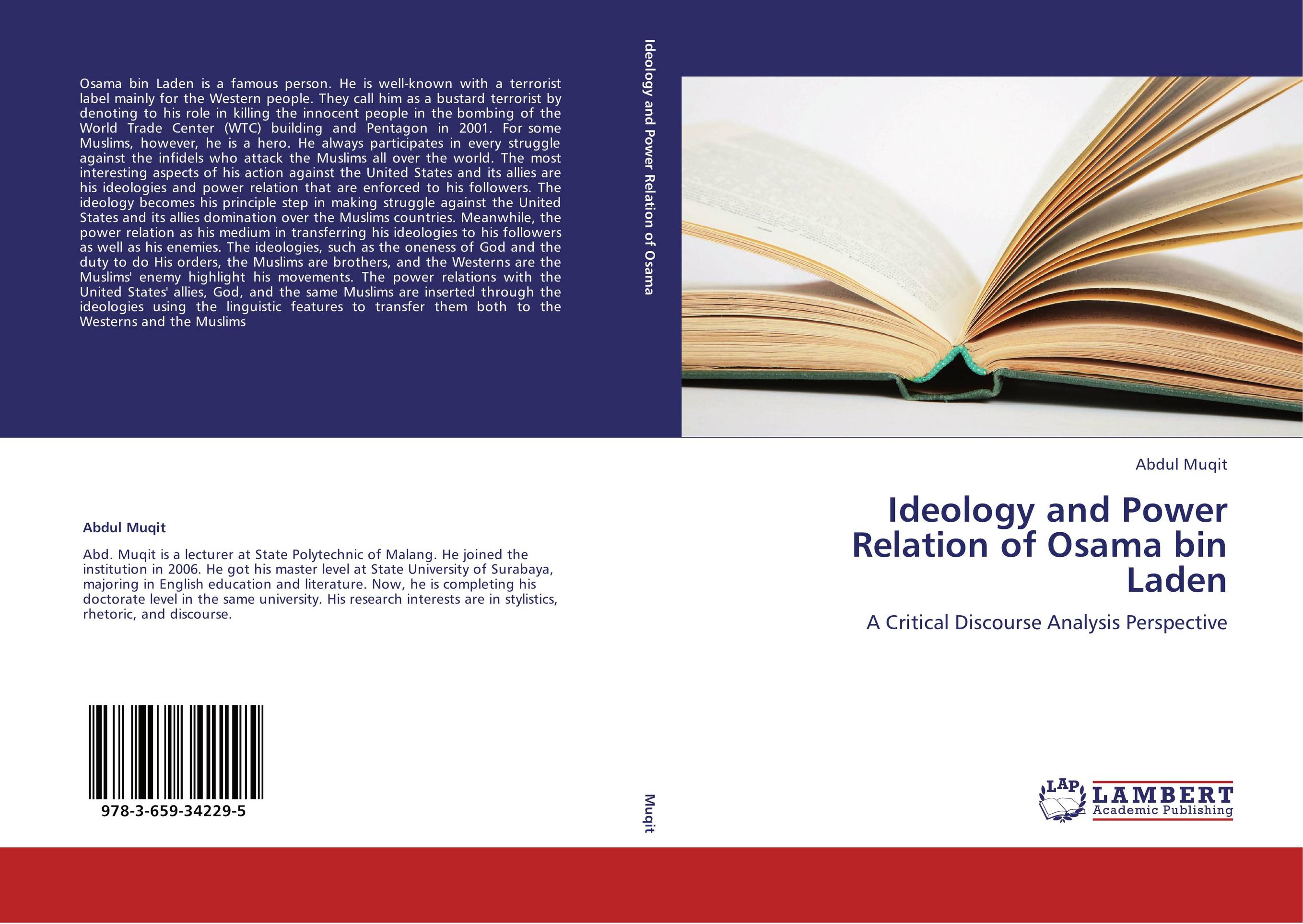| Поиск по каталогу |
|
(строгое соответствие)
|
- Профессиональная
- Научно-популярная
- Художественная
- Публицистика
- Детская
- Искусство
- Хобби, семья, дом
- Спорт
- Путеводители
- Блокноты, тетради, открытки
Ideology and Power Relation of Osama bin Laden. A Critical Discourse Analysis Perspective

В наличии
| Местонахождение: Алматы | Состояние экземпляра: новый |

Бумажная
версия
версия
Автор: Abdul Muqit
ISBN: 9783659342295
Год издания: 2013
Формат книги: 60×90/16 (145×215 мм)
Количество страниц: 240
Издательство: LAP LAMBERT Academic Publishing
Цена: 52037 тг
Положить в корзину
| Способы доставки в город Алматы * комплектация (срок до отгрузки) не более 2 рабочих дней |
| Самовывоз из города Алматы (пункты самовывоза партнёра CDEK) |
| Курьерская доставка CDEK из города Москва |
| Доставка Почтой России из города Москва |
Аннотация: Osama bin Laden is a famous person. He is well-known with a terrorist label mainly for the Western people. They call him as a bustard terrorist by denoting to his role in killing the innocent people in the bombing of the World Trade Center (WTC) building and Pentagon in 2001. For some Muslims, however, he is a hero. He always participates in every struggle against the infidels who attack the Muslims all over the world. The most interesting aspects of his action against the United States and its allies are his ideologies and power relation that are enforced to his followers. The ideology becomes his principle step in making struggle against the United States and its allies domination over the Muslims countries. Meanwhile, the power relation as his medium in transferring his ideologies to his followers as well as his enemies. The ideologies, such as the oneness of God and the duty to do His orders, the Muslims are brothers, and the Westerns are the Muslims' enemy highlight his movements. The power relations with the United States' allies, God, and the same Muslims are inserted through the ideologies using the linguistic features to transfer them both to the Westerns and the Muslims
Ключевые слова: ideology, Linguistic Features, Power relation



